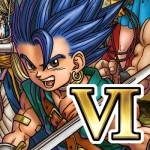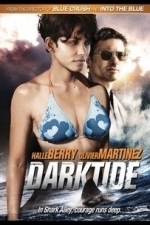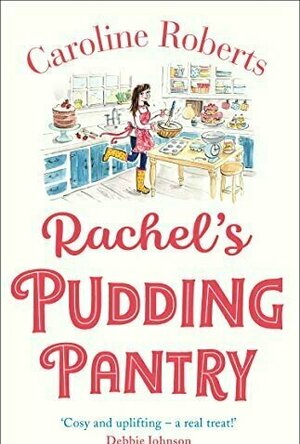
iTeleport Remote Desktop
Business and Utilities
App
"...unbelievably wicked!"-- David Pogue, New York Times "...a winning application."-- The Washington...

Sunrizer synth
Music and Entertainment
App
"This really is the synth that keeps on giving! Inspiration and intuition truly blend together in...

DRAGON QUEST VI
Games
App
Dragon Quest VI: Realms of Revelation , the final instalment in the Zenithian trilogy, is now...

Muslim Pro: Azan, Quran, Qibla
Reference and Lifestyle
App
The most popular Muslim app. Recognized by more than 40 million Muslims around the world as the...

Business Expense Tracker 3.0 with Custom Reports
Business and Productivity
App
SPECIAL PRICE TODAY. REGULAR PRICE $6.99 Business Expense Tracker 3.0 makes your Tax Reporting...
Emma @ The Movies (1786 KP) rated Dark Tide (2012) in Movies
Aug 5, 2020
Kate Mathieson has sworn off sharks ever since a dive went wrong and cost the life of one of her closest friends. Sharks were her life, and only doing tame tourist trips out on her boat means she's about to lose her business. Out of the blue, Kate's ex arrives with a man who's looking for more thrill than any regular dive can offer and he's convinced him that Kate is the only one who can do it. He's willing to pay big, but is the money worth reliving that memory?
Firstly, it was good to see a film with actual shark footage. I watch so many with terrible CGI that I sometimes forget that sharks aren't horribly pixelated and snarly. That is probably where the good comments end.
For a film with action in it I knew something was off almost instantly, there was no real hook into the film. It started out extremely calm and even the initial burst of energy didn't do anything to help and then almost as quickly we switch to present day and it's all calm again. Some might say that the up and down nature of the film reflects how quickly things can change at sea, I personally feel like saying they made a bad judgement call by giving it the pace of a terrible romance film.
Not helping the situation were the characters. Halle Berry always seems to have slightly brusk roles and although Kate doesn't start that way she certainly veers off when her ex shows up and the change in character is so sharp that it loses anything believable. Both Jeff (the ex) and Brady (the businessman) are unlikeable, one devious and the other arrogant, had they ditched some of the storyline between Kate and Jeff there might have been less tension and we'd have had something a little easier to watch. The few additional characters beyond these three were definitely light enough to lift parts of the film but they weren't in nearly enough to have a major effect.
The film was long, painfully long. It's not often I realise so early on that I'm struggling with a film, but for the entire length it felt like a slog. For some reason IMDb is listing 1 hour 34 (that would have been much better) but I checked the copy I watched and it says 1 hour 54. Perhaps 1,34 is how long we all wish it was. There was easily 20 minutes to shed from the runtime, but I don't know if it would have helped much without changes elsewhere too.
One last major change I would have like to have seen was to the whole ending. When things come to their climax it is almost impossible to tell what's going on, it doesn't make it anymore thrilling or intriguing, it's merely frustrating. A successful thriller can show me an almost pitch black scene and I'll be edging forward, eyes wide, waiting for whatever is going to make me jump out of my seat, but Dark Tide successfully bypasses that feeling in favour of leaving the viewer squinting at blackness.
Originally posted on: https://emmaatthemovies.blogspot.com/2020/08/dark-tide-movie-review.html
Ivana A. | Diary of Difference (1171 KP) rated Rachel's Pudding Pantry in Books
Oct 2, 2020
Rachel’s Pudding Pantry is a story about Rachel, who is a farmer in the modern world, living with her mum Jill and her little daughter Maisy. Rachel and her family has been dealing with a lot of grief in the last couple of years, and are struggling financially to keep the farm running.
The one thing that glues this family together, and keeps them happy is the baking and the making of lovely sweet puddings. They bake all day, especially grandma Jill, and they are the perfect example of what a family should look like – full with joy, love and laughter.
I loved the personality Rachel has;
She always puts her family in the first place, cares about her daughter and mum so much. Everything she is doing, she is doing for them, and she is always positive minded. It was such a refreshing moment for me to find such character.
Rachel and her mum are dealing with grief, losing a person in their family that meant a lot to them. This moment of sadness can be felt throughout the book, and I loved it. It shows that grief is a constant battle – it is not easy to lose someone you love, and you don’t get over it very easily. Years could pass, and you will still have the emptiness in your heart. I felt this on my skin, when I lost my grandfather in January. Even after three months, I still think of him every single day, and hope that he is looking over me and is proud of who I have become.
I was also very positively pleased with the other supportive characters surrounding Rachel’s story. Tom was the perfect neighbor – the one you always call for help and will always help you when you need him. He is always caring and trustworthy, and sometimes, I felt awkward when Rachel always came to him for help. Knowing myself, I would be so embarrassed to keep asking for help.
Then we have her best-friend Eve. She was my superhero, and a friend anyone would wish for. She was always supportive, always there for Rachel with her never-ending love. It is a priceless relationship these two ladies have, and I couldn’t help but be a massive fan of them.
The only thing that kept bothering me throughout the book, and is not that big of a deal anyways, was the fact that despite their financial struggles, Jill kept baking for like thirty people every single day (this is before they started the new business). If that was me, I wouldn’t bake that often. I guess it was a fact that just stuck with me for a while.
Even though it is not my usual read, I honestly really enjoyed this book. I am seriously considering giving this genre more time, and reading more books similar to this.
It was a quick, pleasurable read. It always made me feel happy and content, and eager to go in the kitchen and bake some sweets. Because I am a lazy one, I just bought sweets and ate them instead. Tell you what – that also works quite fine!

Corkz - Wine Reviews, Database, Cellar Management
Food & Drink and Travel
App
One of TIME Magazine’s top 50 apps “Corkz if the best all-purpose wine app available for...



